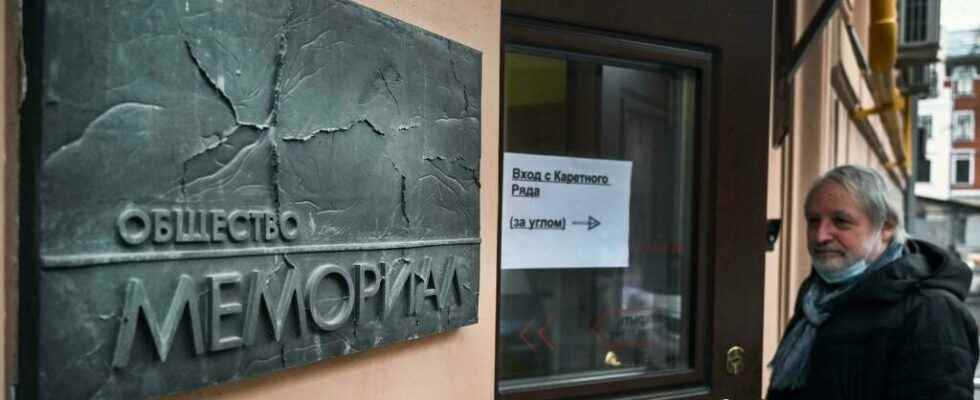We talk, with Amaury de Rochegonde, about the hardening of media control and discordant voices in Russia after the dissolution of the NGO Memorial.
” Foreign agent “. It is with these words that, in Russia, NGOs such as Memorial, which has just been dissolved, are struck with opprobrium, as well as the media, journalists and increasingly lawyers. Evgueni Smirnov and Ivan Pavlov, defenders of investigative reporter Ivan Safronov, were thus forced into exile after receiving this infamous status and prosecution for disclosing confidential information.
If the case of Memorial, ” foreign agent »Since 2016, is striking, it is not simply because it is an NGO symbol of Perestroika, founded by the Nobel Peace Prize winner Andrei Sakharov. Or because this name remains associated with the revelation in Russia of Stalinist terror. It is also because Memorial had become an information instrument through its human rights defense center – stamped ” foreign agent »Him since 2013 – for his denunciation of the abuses in Chechnya as well as his defense and his count of political prisoners. On Wednesday January 5, a Moscow court will also decide the fate of this center which recently investigated Wagner’s mercenaries in Syria.
► Read also: The dissolution of the Memorial NGO, a predictable decision
Building a sovereign Internet
On the list of ” foreign agents », Which recalls the Stalinist regime, there are about a hundred media, journalists, bloggers and even artists since two of the Pussy Riot received this label Thursday, December 30. The figure is increasing sharply since there were only eleven organizations on the list a year ago. Among the obligations of these alleged ” foreign agents », The presence of a 24-word clause in large print on each publication, a declarative quarterly report on their activities and the payment of an annual audit. Obviously, breaking these rules results in fines and prosecution. But above all, the label triggers a public opprobrium which distracts advertisers, sources and readers, as we have seen with the independent site Meduza which integrated this register last April.
In Russia, the aim is to stifle the exercise of journalism as the expression of any voice that dissent from state propaganda. As in China, the idea is to build a sovereign Internet isolated from the large world servers from which dissenting voices will be excluded. The West is not silent. On December 22, the Berlin media regulator obtained from Eutelsat the stop of the satellite broadcasting of the channel Russia Today or RT in German for which no authorization had been given. RT, broadcast in France, is described as ” state-affiliated media », And only on social networks.
► Read also: 2021, a year marked in Russia by repression and attacks on freedom of expression
